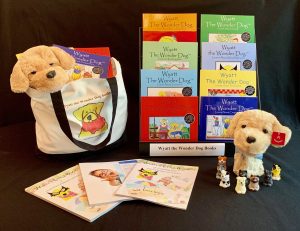What if being bored is good for kids?
Three Ways to Slay the “I’m Bored” Dragon
Summer is a time of relaxation and freedom. It’s unstructured days and late nights; movies and picnics, wild roller coaster rides at the theme park and lazy days poolside. But eventually something will probably rear it’s ugly head. It’s the dreaded “B” word. My kids would usually bring it up after a particularly eventful day spent at the local amusement or water park, where we had been on the go from dawn to dusk. Just as we get home and I collapse on the sofa, they whine pitifully, “I’m bored.”
The Boredom Monster
In our fast paced, always tuned in and turned on world, I believe we’ve created our own monster. Kids nowadays expect nonstop entertainment and often we as parents believe that we are responsible for providing it. We enroll our kids in camps and classes, go on family vacations and visit local attractions. By the end of the summer, we are all exhausted. Instead of being refreshed and renewed, we are tired and frustrated.
What if being bored is actually good?
What if being ‘bored’ is a good thing? What if instead of providing constant activities and structured events, we created an oasis of time for creativity and free play? For many kids this would be a novel concept.
Teaching children to manage their own free time and create their own activities is an important skill. When we don’t learn to do this as children, we grow up to be adults who expect to be entertained as well. Know anyone like that?
Here are some great ways to encourage children to develop an independent mindset while taking responsibility for their own time management and entertainment.
Create a schedule
Even young children can understand a printed schedule that identifies such activities as bedtime, TV or video game time and free time. Then define what free time is: a time to use their own imagination to create opportunities for play. Once they understand that this is their special time, most children will look forward to it rather than look to the parent for guidance.
Brainstorm a List of Activities
Help your child develop a list or a notebook of activities that they could review to give themselves ideas as to how to fill free time. Make sure there are lots of activities that don’t require someone else, such as a friend or you to participate. Children need to learn to entertain themselves without always needing someone else to play with. Here are a couple of more resources to get the creative juices flowing:
Watch how this imaginative nine year old filled his summer days at his Dad’s auto parts shop:
Expect Some Resistance
If you’ve been providing constant activity or resorting to video game babysitters when you are tired of it all, you can expect some whining and resistance to developing their own sense of imaginative play. This is a good thing and a sign that you are working in the right direction.
Enjoy your summer while you slay the “I’m Bored Monster”! Let me know in the comments below how it’s going. What is your biggest summertime challenge with the kids?
Need some great books to share with your child for summer reading?
Check out the Wyatt the Wonder Dog Book Series, children’s books with an empowering message.

